2020 Book Obsession
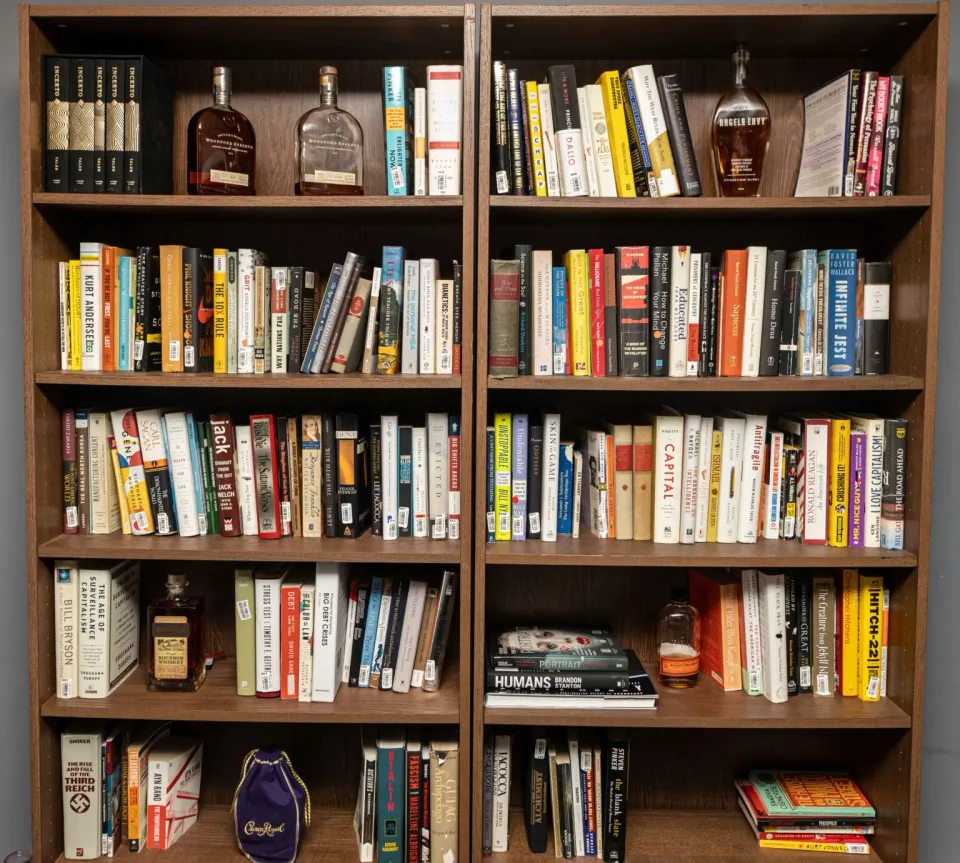
I have awakened something inside of me
I had no idea when I started consuming these books that they would change me like they have, it might be the biggest influence on my life so far. Reading is not the thing I spend the majority of my time on but it’s definitely the thing I extract the most value out of. With resources like my Kindle, Audible, and Thrift books anyone can find a method to learn more and do it on their terms.
Although I haven’t been reading my whole life I have been highly curious my whole life and spending the last few years feeing this curiosity transcends any measurable financial value. There is something about learning the complexities of the world that I believe will pay off exponentially as life goes forward, this is the reason I started and still write this book content: This website is to help people make good investments in themselves, and I believe people are missing out on the highest return on investment possible by not reading difficult books.
The books on my list this year are the dense, complicated, and the most challenging I’ve ever undertaken, making me feel very competitive and intellectually confident, I write this not as a brag but as a means to encourage everyone to do the same.
Previous year book lists
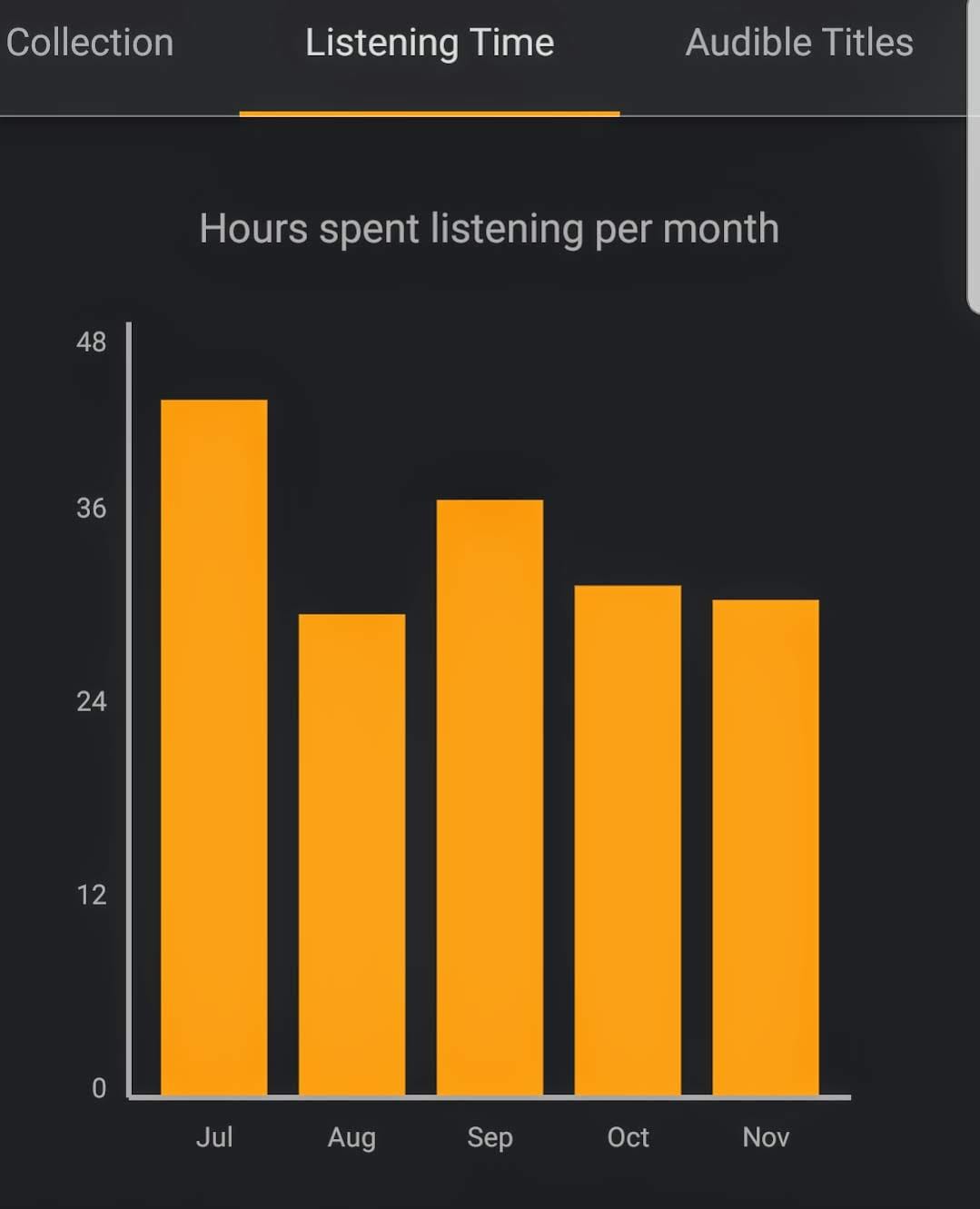
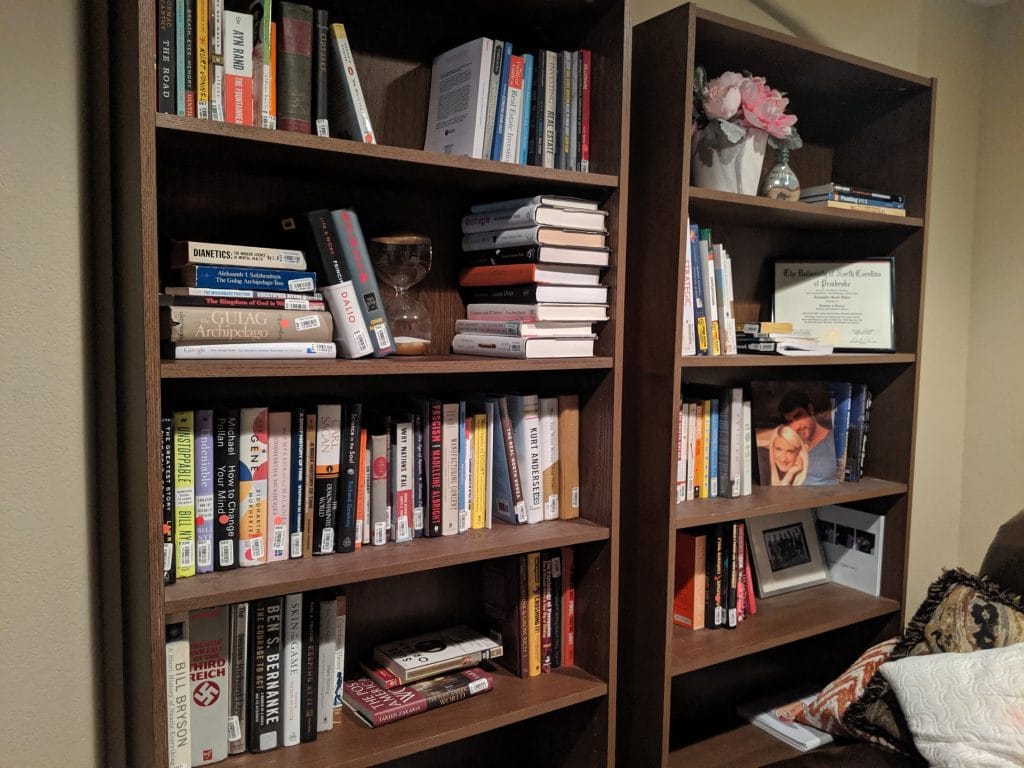
My favorite books of the year

Choosing favorites is difficult. If found that I have to read about 6 to 8 books that are just “ok” to find one that hits me like a truck. I have picked these few to expand on in detail, but it’s definitely unfair to all the other books that I really did enjoy.
Infinite Jest, David Foster Wallace
I don’t read much fiction, but this one touched my soul. This book is largely about addiction, and a genre of our culture called “Post modernism”, which is something our society is currently going through. The premise of post modernism is that there is no over-arching truth in the world, so anyone can make up truth. This slides into dangerous territory in the form of excessive irony, when people use language to say whatever they feel like and they call it their truth and if it’s simply not true, then they can shrug their words off as “I’m just joking” or the like.
As someone who has battled with a highly addictive personality my whole life I really connected to this book. This quote really hit me
“What fire dies when you feed it?”
In the book this quote was in reference to fame, but can be applied to almost anything we chase. If you have a burning desire for some way of life, adding to the fire rarely will quench your thirst and will generally add to it. Similar to telling an alcoholic that there is nothing at the bottom of the bottle. We have to make peace with what we have.
Another quote that will sit with me for the rest of my life:
This hit me like a ton of bricks. The quote is in relation to finding higher meaning, which is reference to the post modernist movement I spoke about above. With no agreed upon truth or values we have no agreed foundational value system to bind us together in common, we have nothing that is bigger than us to lead as a guiding force. This is what religion is supposed to do, act as an over arching value system to ground us when we are lost. When we have no values or our values are fickle, we are likely to chase fleeting impulses or the popular thing of the day. In America today we suffer from this deeply which is the exact purpose of this book: to predict the future postmodern decline of American culture, and now we find people attaching themselves to whatever passing culture war the news brings or the latest wannabe dictator. Attachments that come and go with one person, or in a fleeting timeline are extremely dangerous, and this idea has motivated me to write out my own values in life, to think about them carefully, and to make something that is bigger than me…..I haven’t completed this year, but it’s something I’m working on. In the meantime, I am choosing my attachments with great care.
Some other quotes I liked that reference our self centeredness and consumerist culture.
The Blank Slate, Steven Pinker
This was an incredible book about human biology and social behavior and how it related to our political discourse. I read Pinker’s newer release “Enlightenment Now” about a year ago and was fairly unimpressed, this one is much better.
The book tackles the idea in it’s simplicity of the “nurture versus nature” argument. Humans are a mix of both nature and nurture, and “The Blank Slate” tackles the endless nuance about how this manifests in our actual lives compared to science behind it, it also includes all the political arguments that arise along the way and often get attached to extremes. I love politics but I hate over-simplified discussions, if you feel the same this book is definitely for you. It covers all the controversial topics and does so with objectivity and relatability.
The Blank Slate tackles the very difficult and often uncomfortable idea that humans are not equal in all ways, but still have relative strengths and weaknesses.
The Age of Surveillance Capitalism, Shoshana Zuboff
Probably one of the most important books of the decade. Far too difficult for me to summarize but definitely one I want to advocate for as it applies to everyone. It takes the idea that social media companies are using our data against us, which we all know, but it’s way way scarier and way deeper integrated in our culture than I had ever realized.
To give a glimpse, instead of just collecting data that you give these companies they are actually measuring your behavior (how often you post, how much you share, how erratic your behavior is, and how it conforms to known personality types) then it takes your personality data and makes a prediction about how you will act under certain circumstances, for example showing you an ad for wine when they know you’re in a sad mood and seeing if you’ll buy. If you do, they have not only predicted your actions, but created them. Social media is creating our behavior to fit their needs and worse, there is zero accountability or protection for us.
There is a documentary on Netflix called “The Social Dilemma” which covers a portion of what this book is about and features the author of this book and another cultural critique book called The Coddling of the American Mind which I previously wrote a review about.
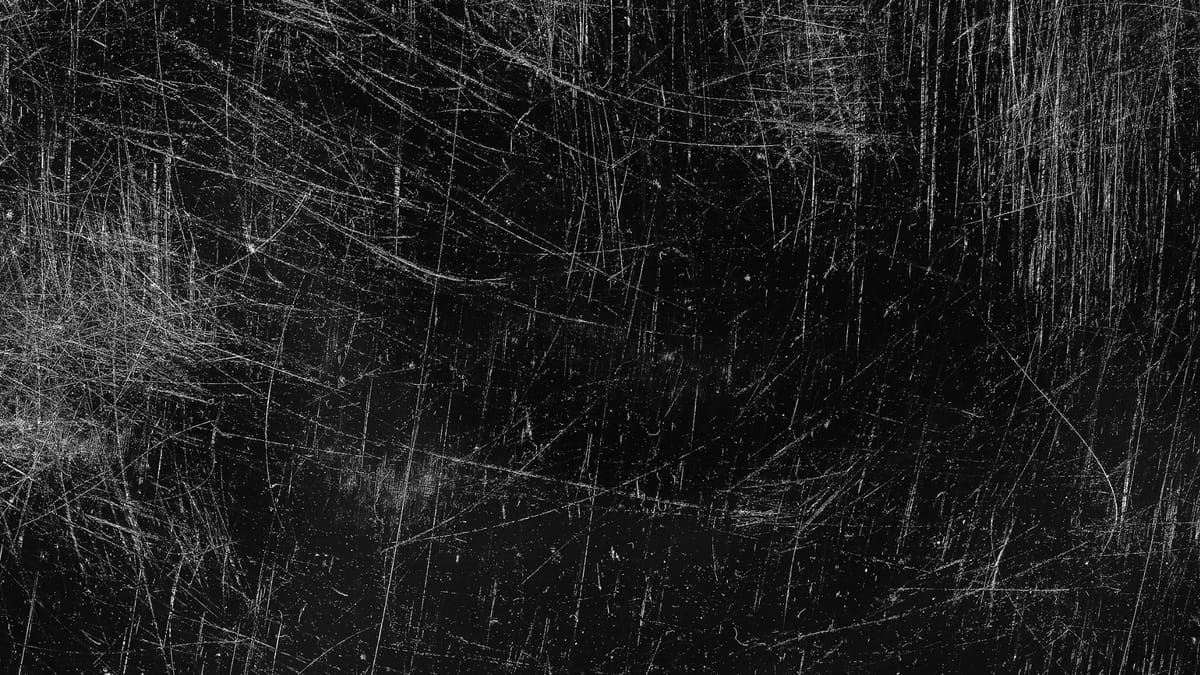

Notable mentions
Educated, Tara Westover
A fantastic memoir about a girl born into a highly religious Mormon family who’s traditions are old fashioned to say the least. Tara goes to college and realizes the world is far bigger than her parents would have ever taught her. This is a great story about how knowledge is at the core of how person creates their individuality, if you spend your whole life repeating someone else’s opinions then who are you really?
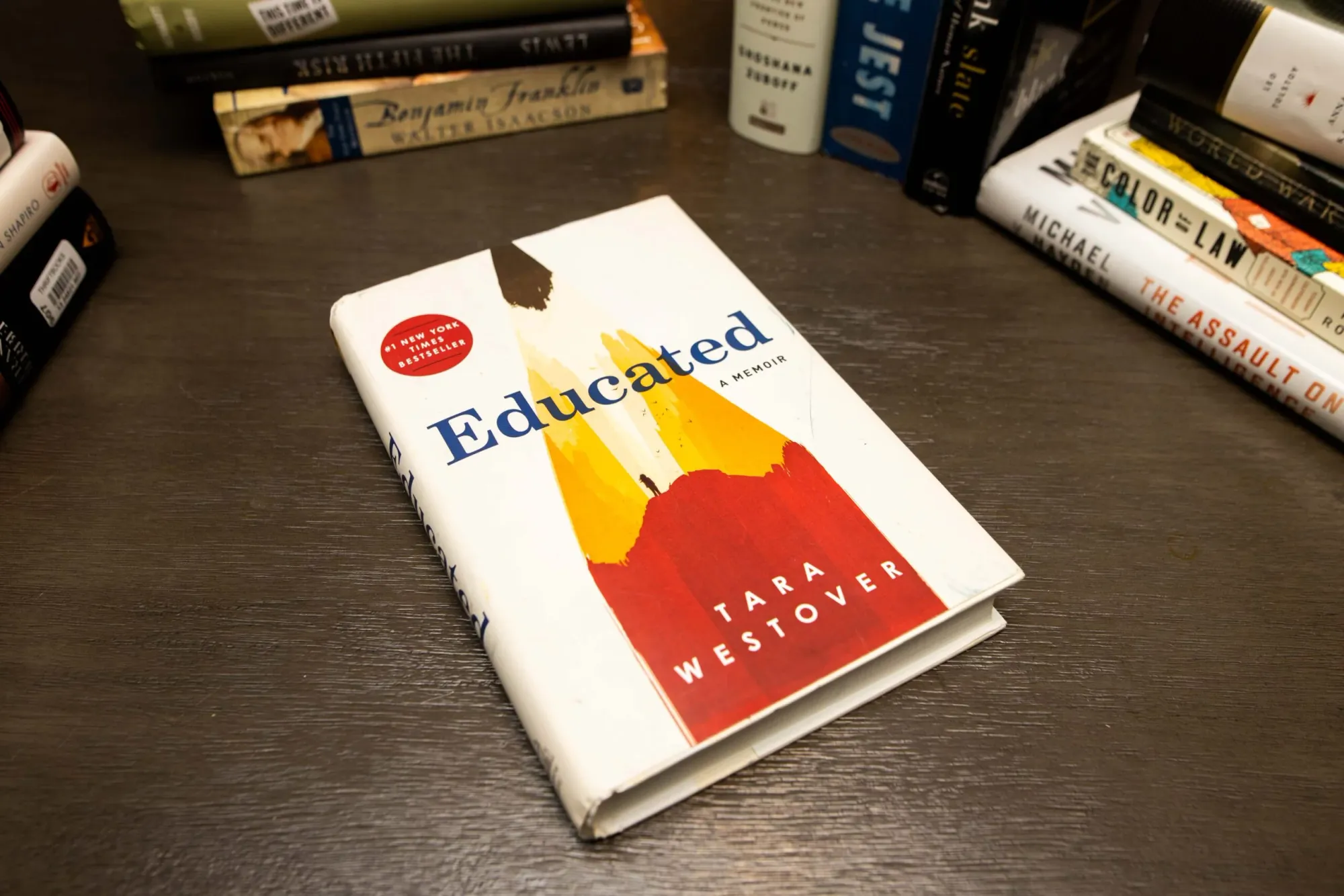
Debt: the first 5000 years, David Graeber
An anthropological look at how cultures have used debt since it’s inception. Among many other interesting things the book covers it also posits a contrary position to the common idea that before fiat money societies all used a barter system. The book instead claims that debt started with the simple idea of “who owes who what” and how the manifests in culture and currency beyond just a tally of accounts receivable. Fantastic read for those who like culture, history, and monetary history.
Anna Karenina, Leo Tolstoy
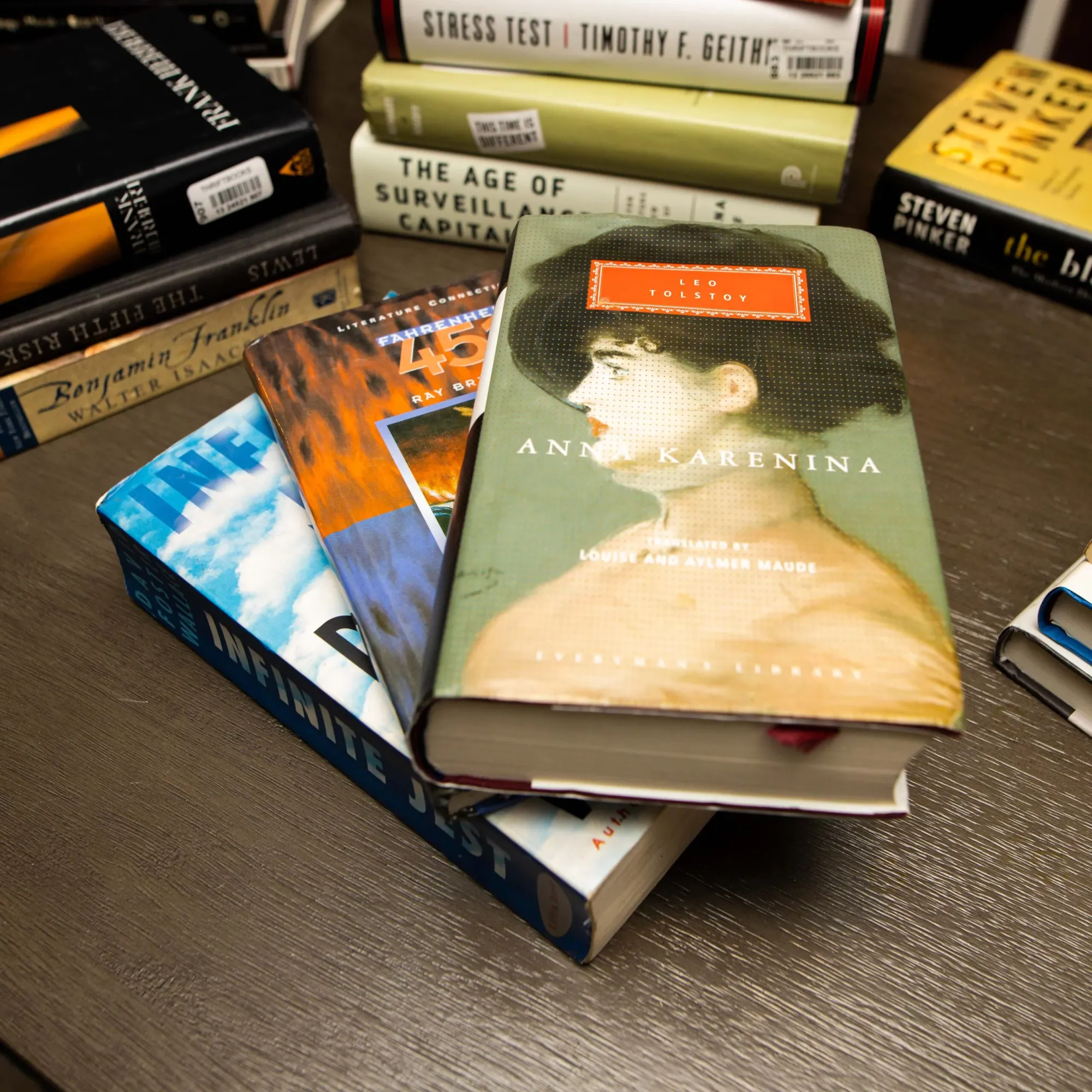
Tolstoy is regarded as one of the greatest writers of all time, and this book cemented that for me. This is a story about the tragic life of someone who chases fleeting love, and it’s so relatable because the characters make so many of the same life mistakes that we all (at least me) make. This is a book I wish I would have read earlier in life as I may not have made so many of the same mistakes in my relationships that this book covers. It’s long and tedious and worth every moment, in fact this book showed me that books can have an easily explained meaning but correctly convey the point of the book. In order to understand this book I had to read the whole thing, if I had read a summary I would have understood the words but not the lesson. At just under 900 pages the story and nuance is incredibly deep which creates a meaningful emotional bond with the reader and the characters that is far more than just listing out their actions. The length of this book is daunting but it’s also imperative to realizing the point of character’s decisions, otherwise one would suffer from this quote I love: “Beware of unearned wisdom”.
This Time is Different , Carmen Rinehart & Kenneth Rogoff
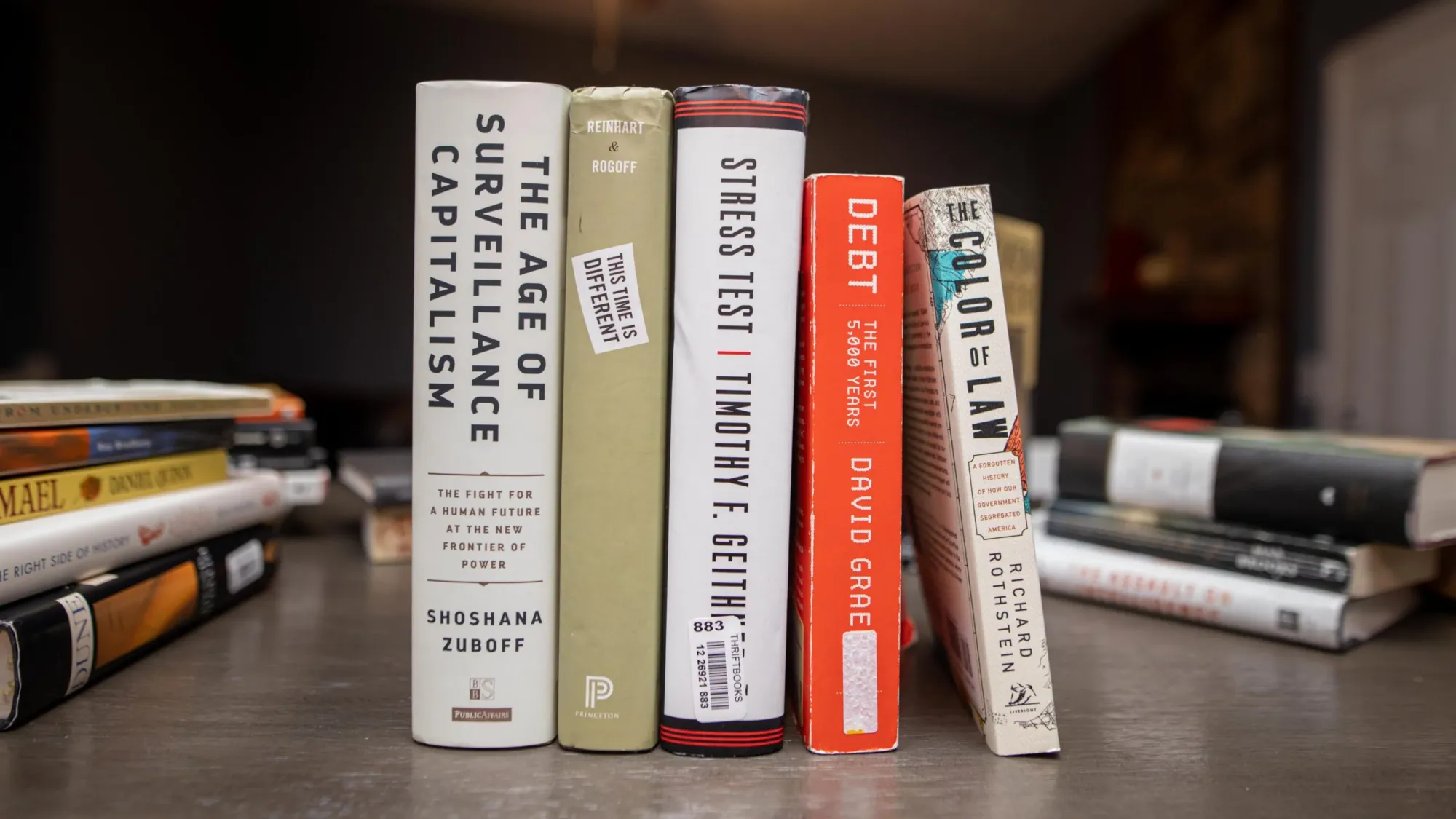
At the time of this writing, December 2020, the US economy has been on a meteoric rise of unprecedented proportions. Everyone is winning and they all think it’s because they are so good.
Meanwhile the government is subsidizing all this success on the back of low interest rates and printing money (inflation) like we have never done before. There is a sentiment that this winning streak can last forever, perhaps the economy will no longer cycle like it has in the past, perhaps this time is different.
This book covers 800 years of economic collapse that all seem to happen right after people claimed “this time is different”. The fact is this time is not different. Ironically the cause of those 800 years of crashes? Debt and currency debasement (inflation)….The end is near my friends, get ready!
Fahrenheit 451, Ray Bradbury
A dystopian future where firefighters don’t put out fires but instead start fires. They burn books and the homes of anyone who dares to own a book. The premise is that books make people think and thinking makes people sad, which is largely true. Reading has made me quite the cynic and it causes me grief to consider difficult ideas rather than just watching Netflix and letting the world do it’s thing without worry.
A must read for those who like to think for themselves and to discover the worth of books.
The Antichrist, Friedrich Nietzsche
The title is obviously polarizing but this was quite the incredible book. I’ve read 6 Nietzsche books so far and he’s always very insightful and his use of language is visceral. Certainly one of my favorite thinkers of all time.
This book is a criticism of parts of Christianity, specifically the new testament and he’s a harsh critic. Nietzsche isn’t against religion so much but his position is that the world is hard and things that make us tough make us better to deal with the world and there are things that don’t make us tough: sympathy, pity, fear, and subservience. I’ve read many books critical of Christianity in my life (God is not Great, The God Delusion) as I spent the first ~33 years of my life as an Atheist but those books take the literal text of the bible and display how they are false, this book critiques the culture created by Christian teachings instead and not as a whole, just the parts that are valid to critique. I tend to agree with the ideas here but the nuance of what’s said is important, it’s too easy to be labeled as a believer or non-believer which does a disservice to the complexity of how people interact with religion and it’s value.




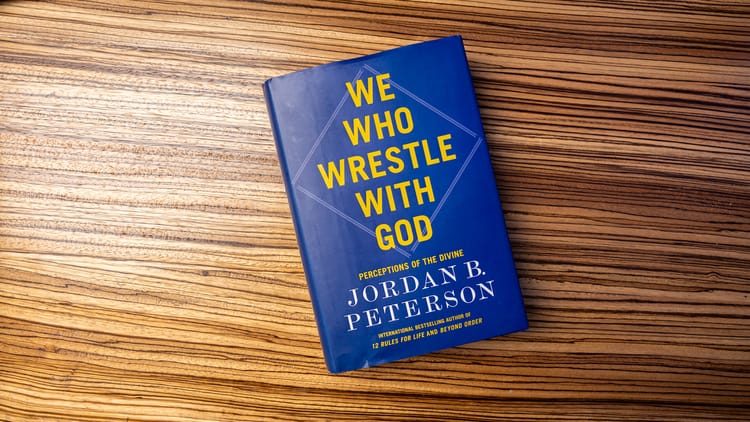
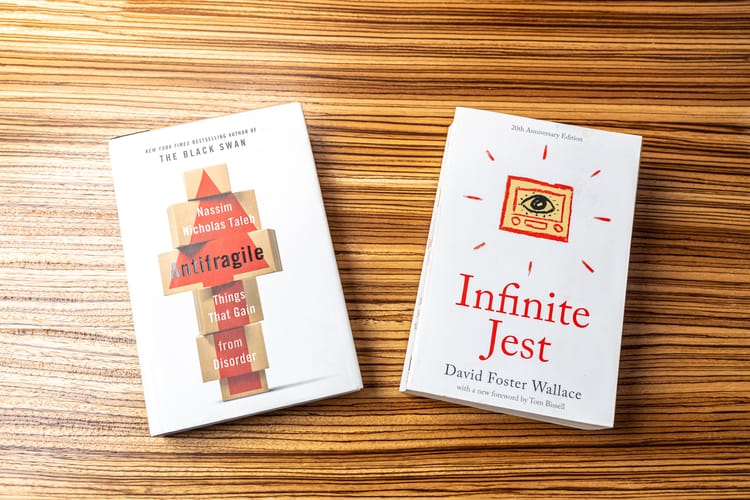



Member discussion